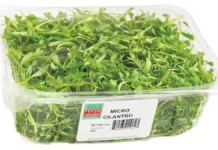
I see a lot of businesses that are out seeking financing. In the early stages of their search for financing, they are totally surprised at how difficult it can be to secure growth capital or money for a start up.
I was recently contacted by a multi-unit QSR restaurant owner that has been in business for over 6 years and does over $7MM in revenues and is profitable. The company has no outside debt and all store development had been paid for with the owner’s own capital. The owner also has great personal credit but as with many New Yorkers, does not own a home, but rents an apartment. They were seeking $500k to build out a new central commissary and retail outlet to support the existing locations.
Projections show that the new commissary operations will increase catering revenues dramatically and reduce kitchen labor at the unit level while increasing the sales and seating space in all 4 existing locations. With a central commissary each store can reduce the size of their walk-in boxes and prep areas while eliminating redundant prep staff. The plan is great and this is an outstanding candidate for a loan. So what is the difficulty here?
The truth is that their bank – JP Morgan Chase, did the usual bob and weave avoidance dance that would make a Top Gun fighter pilot proud. Despite the fact that this owner, her family and her businesses have been long-term customers, they couldn’t see fit to offer them a conventional business loan. They suggested that the business finance the new facility with their personal funds as they had done in the past. Nice heh?
I’ve said it a million times – your bank really doesn’t want to lend to restaurants unless they have heavy guarantees and so much collateral they are forced to move ahead. Reality check – if you are not a triple A credit quality with a balance sheet and personal assets heavy enough to cover their loan at least X2 – don’t call your bank.
Still optimistic, the restaurateur then pursued SBA loans but didn’t really understand that the SBA doesn’t actually fund the loans directly – they work with a partner bank. Now you have the same problem, but at least the SBA is willing to guarantee 50% to 85% of the loan depending on the program and amounts, which opens a lot of doors but puts down its own obstacles.
Even with the added strength of an SBA guarantee, this restaurant owner was only offered $150k, which I speculated was because she didn’t possess personal assets such as a home, to pledge as collateral against the loan. It makes you wonder how much of a commitment does a business owner have to make? Duh… every dime to build and launch the 4 locations was done without any help from a bank! She owns them free and clear – doesn’t that count? Another revelation – those collateral assets in the business hold very little weight, as the liquidation value of restaurant equipment is pennies on the dollar. Frustrating but true and now the simple fact was that $150k wasn’t going to get it done so all that work left them short.
The full SBA loans application process can be labor intense and require proof of your representations. The creation of a business plan and the submission of full financial statements including 3 years projections, which reasonably demonstrate your ability to repay the loan is required. You must be able to justify your budgets and cash flow projections along with back up information to validate your assumptions. You must also demonstrate that you have “skin in the game” – a real and meaningful cash investment in the business, not just sweat equity.
Another trap requires any person owning 20% or more of the business will be required to sign the guarantees and submit an SBA disclosure form of your assets and personal financial statements. This could really create a problem if you have investors in your business and their stake is 20% or greater. Why would they want to guarantee YOUR loan and put their houses on the line?
Among the misconceptions about the SBA is that they are more receptive than a bank and that they understand entrepreneurs better. Maybe on some level this is true, but the fact is they are a government support organization for small businesses and at their core they are a large financial institution that guaranteed $32 Billion in loans in 2017. They do not operate on your level and until you have been in the trenches, struggled to meet a payroll and build a business, you don’t understand what it’s like to be one of us. They have gotten better over the years, but to get money into the hands of small business owners they still need to work with a sponsor bank so the handcuffs are still on.
Another misconception about SBA loans are that the loan guarantees will absolve or protect borrowers from the bank guarantees if they default.
Quite the opposite is true as the borrower signs Personal Guarantees (PGs) for both the bank and the SBA. The SBA PGs include a pledge of personal assets including your house and cars along with the signature of your spouse as additional guarantor. You could have done everything right in your business and for some reason it failed – now you lose everything you own including your home to cover your loan obligation.
If you are willing to go through the work, most SBA programs offer very favorable terms and deserve your full consideration. You can benefit from their lower rates and longer terms. The unfortunate truth however is that many small business owners will not qualify after doing all that work or may choose not to put up their personal assets as collateral. When I owned restaurants, I had to sign many documents guaranteeing the performance of my businesses, but I always said that I drew the line at my front door. The house where my kids lived was off limits and I don’t encourage anyone to put themselves in that position.
If you are prepared to explore this option, the most popular SBA loans are as follows:
7(a) Loan:
This is the most popular SBA program and is for both new and existing small businesses. A 7(a) loan can be used for more general purposes, such as working capital, purchasing or renovating land or buildings, equipment, furnishings, debt refinancing, and more. Maximum amount is $5 million. Most loans are about $150k.
CDC/504 Loan:
For growing businesses and provides long-term, fixed-rate financing for major assets, such as buildings, land, or long-term machinery. These loans cannot be used for working capital or inventory. The maximum amount of a CDC/504 Loan is $5 million.
Microloan:
Loans up to $50,000 to help businesses startup and expand. These loans can be used for working capital, supplies, furnishings, inventory, or equipment. They are available through non-profit lending organizations focused on economic development.
Good luck in your hunt for capital. If you have any questions or just want to discuss your business, please contact me at dsederholt@ragnarpartners.com























